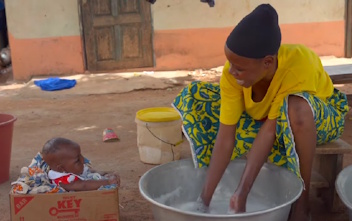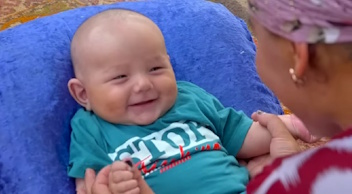Como Observar Interacciones entre Cuidador y Niño – República Kirguisa
Grabado en la República Kirguisa, este vídeo en español utiliza un formato de «pausa y reflexión» (pregunta y respuesta). Haga una pausa después de cada pregunta para reflexionar sobre ella y luego reanude el vídeo.Read More →







